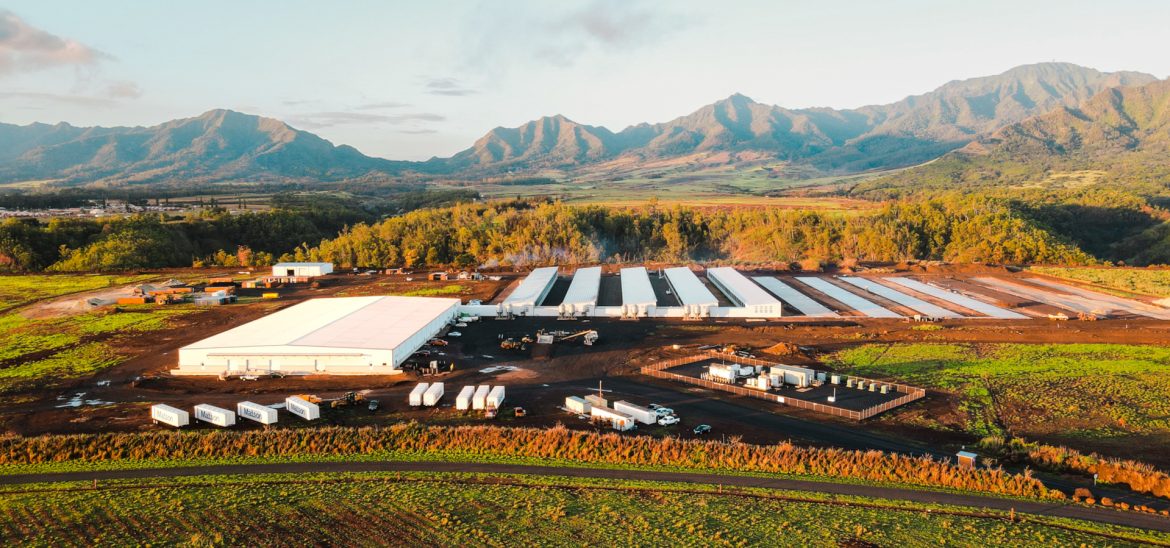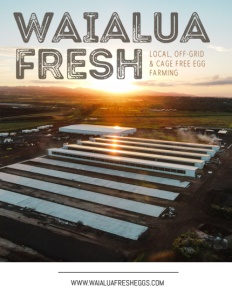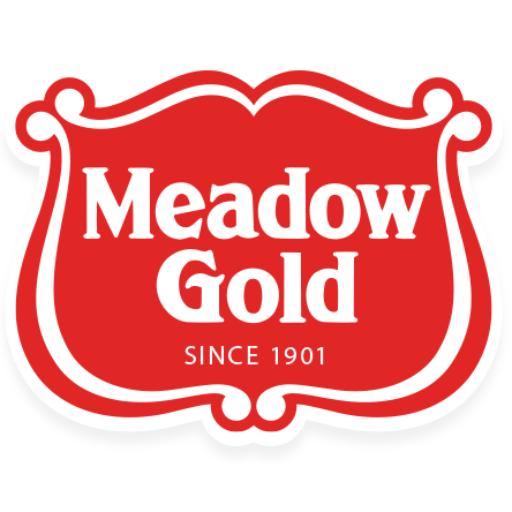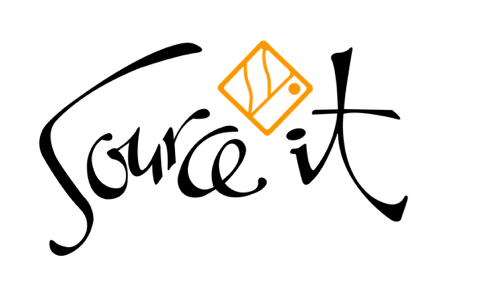Waialua Fresh / Villa Rose Egg Farm
Local, Off-Grid & Cage Free Egg Farming
Proudly providing up to 60% of the eggs supply for local grocers, Waialua Fresh is putting Hawaiian customers first
In October 2013, two family-owned companies took a long, hard look at Hawaii’s egg market. In response to what they found, which was that a startling 90% of eggs in Hawaiian stores came from the mainland, Hidden Villa Ranch (California) and Rose Acre Farms (Indiana) combined their assets to form Villa Rose Egg Farm. Construction on the site’s first barns began in 2017, with the first eggs hitting shelves in early 2022. Today, this farm stretches across over 300 acres and supplies Cage Free, Grade A Eggs in Small, Medium, Large, Extra Large, and Jumbo, with carton sizes ranging from half a dozen to five dozen.
Trading under the Waialua Fresh brand, Villa Rose Farm identifies its mission and vision as, “… to generate positive, measurable social and environmental impact, giving back to the community and land that has hosted it. Villa Rose hopes that it can be an example to others and can be used as a model of sustainable agriculture. The goal of Villa Rose is to help Hawaii rely less on imports from the mainland.”
Michael Senser of Waialua Fresh delves into the company’s unique offering. “Our farm and the Waialua brand started ten years ago with the aim to create a fully self-sufficient, environmentally responsible egg producer that would service Hawaii in a way mainland producers simply cannot. Our first four barns are up and running, and we have six more on the way that will produce eggs in 2024. This project is the first agricultural venture of its size in Hawaii for many, many years, and was a significant gamble for our two parent companies, so we have thought about every step very carefully.”
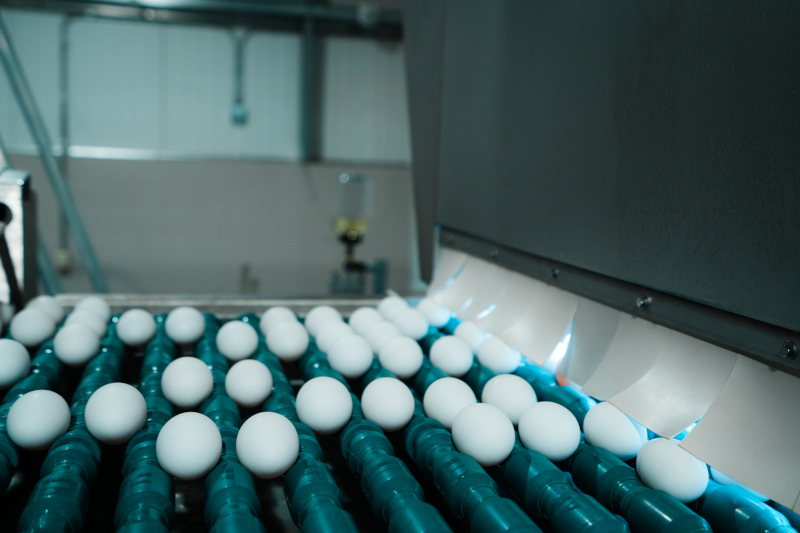
He continues, “This operation is designed to be completely off-grid, certified carbon neutral, and a positive force for its local community. Sustainability is front of mind in everything we do. We make 100% of our own power through solar arrays on the property and have an independent water well that produces primary water. All of our wastewater is treated and used for irrigation after going through the wastewater treatment system, which is also on site. Because that system is closed, we have no standing water on the property and don’t produce any runoff that could damage surrounding ecosystems. Even our chickens’ manure has a purpose- we have a biochar machine onsite that converts it into a powerful fertilizer which we then distribute to local farms.”
Waialua’s goal from day one has been to create a self-sufficient system that supports circular economy best practices and is completely contained within the Hawaiian Islands. With plans to connect with O’ahu farmers to grow and mill grain for bird feed locally already underway, Waialua is on track to realize that goal sooner than anticipated. But this company’s offering is much more than just sustainable, their product is fresher, too.
“We are looking at about a two million bird market to service the Islands without any product coming from the mainland,” Senser explains. “That estimate takes into consideration Hawaii’s population of both tourists and residents, the eggs they’re eating, and how that translates to the number of birds needed. Right now, there are around 500,000 laying birds on the Islands, 200,000 of which are ours. Our farm is looking to increase to half a million birds by the end of 2024, but that still leaves 1,200,000 birds’ worth of eggs coming from the mainland. So, we do have a fair way to go before reaching our goal- but looking at our growth so far, we are confident that we can get there.”
Senser also explains that Waialua’s growth strategy is to maintain steady, planned development whilst keeping a close eye on market demand and trends. “We don’t want to tax the marketplace, and we certainly don’t want to hurt our existing local farmers. Our goal and our direction for the most part is to replace all eggs coming from the mainland with those coming off of our farm. Our plan has moved along without any major issues, but we did experience some difficulties with permit processes and equipment supply during the pandemic. Most of our equipment inside the barns comes from Europe; the first four barns’ equipment came from Italy and the next six are coming from Germany. Of course, now that the pandemic has settled somewhat, supply has improved. However, we are now dealing with rising inflation. There are always hurdles to jump across. We face them head-on and keep going.”
Waialua Fresh eggs can currently be found in Foodland, Times Supermarket, Don Quijote, Marukai Wholesale Mart, Safeway, COSTCO, KTA Superstores, Chef Zone, ABC Stores, Tamura’s Market, and the Island Grocery Depot. Waialua also supplies a number of hotels throughout Hawaii.
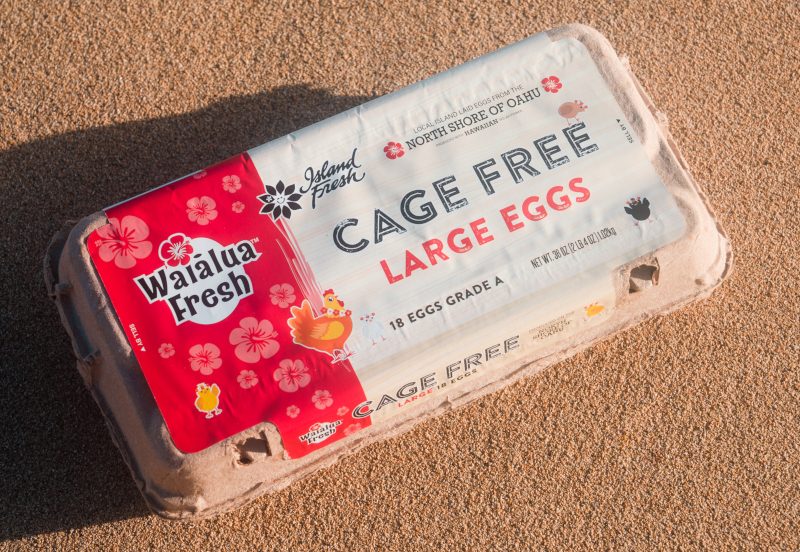
The difference between local and imported eggs, Senser shares, lies in their freshness. “When you compare them to those coming from the mainland, eggs sourced locally are much, much fresher. Ours is even more so than the local average, thanks to our automated processing. Waialua Fresh eggs are laid in the morning and processed by the afternoon through what we call an inline facility. So, the eggs are laid in the nest, roll straight down onto a belt, and are transported directly into the processing plant. Because we have virtually no inventory to hold things up, those same eggs could end up in stores the next day.”
He continues, “Eggs coming from the mainland are not only on the line for a week, but they can be in warehouses for a week or two, and in a processing plant for another week or two before making it to transport. What this means is the bulk of Hawaiians are eating eggs from the mainland that are four to six weeks old. Once we complete our circle by growing our own feed, we will be one of the first self-contained manufacturers in Hawaii, which is incredibly important because there is very little manufacturing on the Islands in any industry. With the exception of fruits and vegetables, just about everything comes from the mainland. We want to show our communities that it is possible to do things locally when you plan carefully and put in the effort.”
Villa Rose Farm uses the most modern technology available to ensure the safety and comfort of its birds, as well as the safety and efficiency of its manufacturing processes. Chickens are free to roam within their barns, which keeps them contained and protected from predators or weather events. Waialua’s birds are free to fly up, down, and across, and have access to perches, which are vital to maintaining proper muscle development. Nesting boxes are comfortable and aplenty, and chickens have 24/7 access to water and feed through automatic droppers. Waialua’s use of technology also protects the company from a biosecurity perspective, with separate entrances for production staff and state-of-the-art sanitation suits.
Senser elaborates, “Avian Influenza is decimating the mainland right now; it killed about 60 million birds last year. As a result, the United States is seeing an egg shortage in all states. We currently are the only place without the Avian Influenza virus and are doing everything we can to ensure it doesn’t come here because it could wipe out entire populations of poultry overnight. So, our technology and biosecurity measures are incredibly important to protect not only our consumers but our birds as well.”
Senser would like to conclude with a shout-out to Waialua’s supporters throughout Hawaii and beyond. “I would love to thank our retail partners and Hawaiian consumers for their support of our products, as well as our distribution partners, who are listed on our website. The support has been tremendous; for example, our eggs have now been in Costco for about nine months, and have been side by side with the same package from the mainland. Our local eggs are a little more expensive, but not by much. Consumers have been so excited and ready to support local products that Costco has sold out multiple times. By 2024, I hope to see Costco and similar retailers fill their shelves only with local Waialua Fresh eggs.”
The next steps for Waialua Fresh include installing solar panels to finalize the construction of their next six barns, setting up their equipment, and filling them with layer pullets. These additional barns will increase Waialua’s retail capability, which will allow the company to match demand without selling out.
By 2024, these barns are expected to be in full swing, and Waialua Fresh will move on to the next set of barn construction. The future looks bright for this company, as they continue doing great things for Hawaii’s local market.
AT A GLANCE
Waialua Fresh
What: Family-owned, sustainable producer of Hawaiian local chicken eggs
Where: Waialua Fresh is headquartered on the North Shore of O’ahu, Hawaii
Website: https://www.waialuafresheggs.com/
PREFERRED VENDORS
Rengo Packaging, Inc. – www.rengopackaging.com
Rengo Packaging Inc. is your local source for all your packaging needs! With the experience of over 60 years in the Hawaii packaging industry, our friendly and professional team promises total customer satisfaction and a short lead time due to our on-island manufacturing. Rengo Packaging is also food safety compliant and our facility is environmentally friendly. Call us today at 808-484-5818 or reach out to info@rengopackaging.com to learn more!
